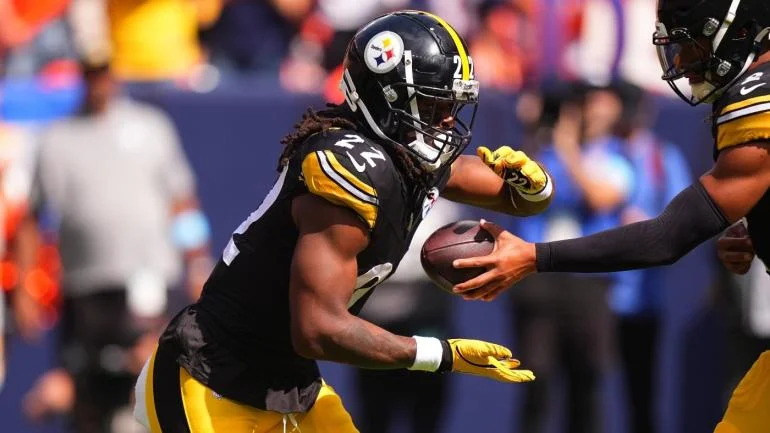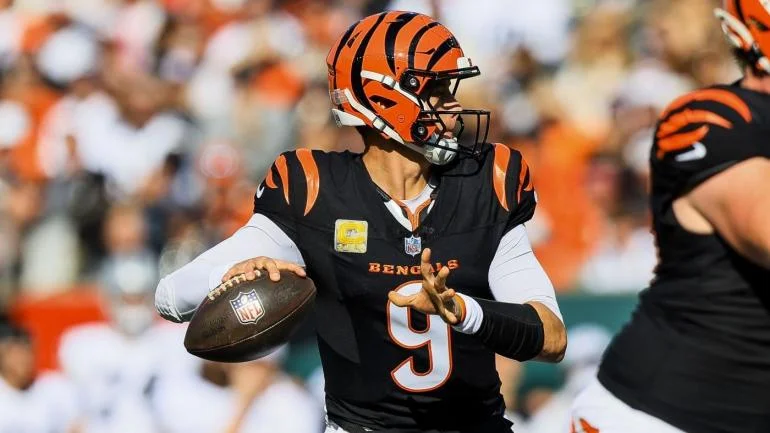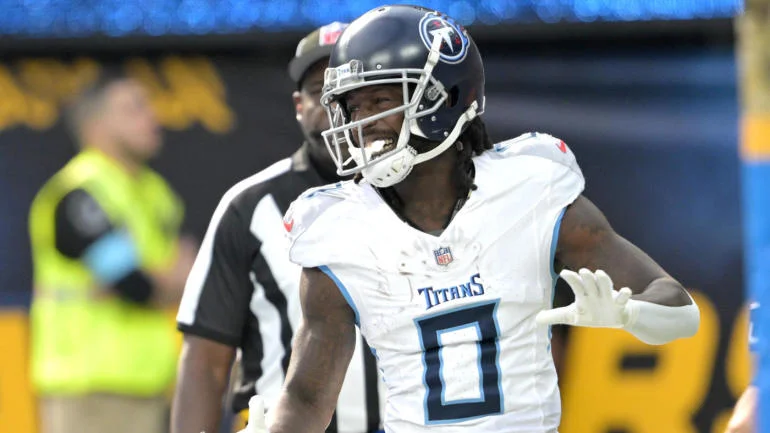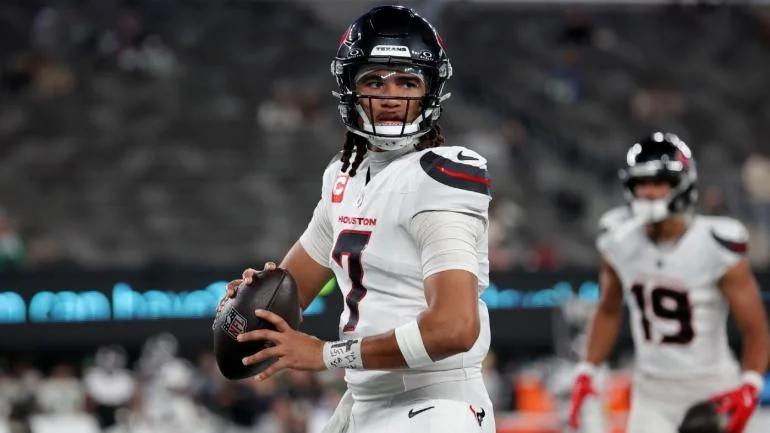Welcome back to “Was It Worth It?” where every few days we will be exploring (okay, *I* will be exploring, and you mainly reading about it) all of the noteworthy QB dilemmas teams around the league faced this offseason and how they handled them, with my analysis of whether or not they have made the right decision. This week: The Jacksonville Jaguars.
Drafting a rookie quarterback onto a team with a lot of holes can almost create more problems than it solves. After all, with no blocking to give him time to go through progressions and receivers that aren’t great at getting open and/or catching the ball, not to mention a lack of running game to keep defensive backs honest, what is there to really evaluate a quarterback on beyond willingness to keep playing? What is there for him to learn other than that he will be hit a lot and that defeat will be a large part of his life?
Problems like this likely contribute in large part to Jacksonville’s decision to pick up Blake Bortles‘ 5th-year option. The fact that the Jaguars front office waited until almost the last minute to make this decision only reinforces the idea that not only are they unsure whether or not they want to stick with him long-term, they aren’t even sure what to base that decision on. Let’s see if we can help them figure that out.
Blake Bortles was highly praised en route to the 2014 draft. There was significant speculation that the Texans would draft him first overall, but he ended up falling to the Jacksonville Jaguars, who made him the 3rd overall pick. In a surprising move, they went on to draft two wide receivers in the second round and picked up an undrafted WR who would also make the team, showing an impressive dedication to providing their new franchise QB with viable weapons. This was important as the Jags had finished last in points scored and second to last in total yards the previous year. I think their intentions were sound, but also think that it was a bit unwise not to bring in a veteran wide receiver. Shouldn’t a brand new QB have a receiver he can trust and maybe learn a little bit from, rather than trying to learn the timing of three receivers who are still learning to run basic routes? Three of his four top receivers were drafted the same year he was. The “veteran” of the group was Cecil Shorts, drafted all the way back in 2011.
General Manager Dave Caldwell seemed to feel that with all of the young talent brought in around Bortles, that the offense as a whole would not be stable enough to support a rookie quarterback (in my opinion, he was right) and instead made Chad Henne the starter, giving the receivers an experienced QB to learn from so that they could then use that on-field experience and veteran example to help Bortles out when he started the next season. This seemed to be the plan, and it was a damn fine one. Bortles would have time to develop, and Henne would get one last year with fresh receivers to show what kind of on-field leader he could be. Instead of waiting one year, though, they went for two and a half weeks.
Down 30 points at the half against the Colts (who were a decent team then), the decision was made to bench Chad Henne and bring in Blake Bortles. This was a very understandable decision, as Henne was not passing particularly well, but with only 10 pass attempts in the half, maybe the problem was that he wasn’t being a chance to get into a rhythm. After all, he’d had 0 turnovers. The defense, however, had given up points on every single possession. Bortles came in and had what had to be considered a pretty solid debut, averaging over 7 adjusted net yards per attempt, but that shouldn’t be too surprising given that this game was in full-on garbage time. In addition, his receivers broke a lot of tackles, padding the hell out of his performance. What was surprising was that it was later announced that Blake Bortles, for playing well during garbage time, would be the new starter. To be fair to Head Coach Gus Bradley, Henne had not been playing well, managing only 4.36 adjusted net yards in his three appearances, but with such a poor O-line and inexperienced receivers, that had to be expected. You may think I am making excuses for Henne (maybe I am a little), but just be patient.
Bortles would finish the year with 11 touchdowns, 17 interceptions, and 7 fumbles. His adjusted net yardage of 3.9 is the second lowest of all 148 qualifying QBs over the last 5 years. Despite spending their first 3 picks on offense, the Jags finished the season last in points scored and second to last in total yards, just like they had the previous year. In addition, they went from 4-12 to 3-13. Considering that 4 of their remaining losses would be one possession games, it’s very feasible to think that their record would have improved a little with the extra 0.46 adjusted net yards per attempt that Henne represented. Of course, that would have meant a head coach that valued winning over letting his players learn.
That focus on player development, however, would appear to pay off in 2015, when Blake Bortles would have his “breakout year.” His 4428 yard, 35 touchdown season has been labeled “explosive” by some pundits, but let me add another description to that: below average. The total yards and touchdowns weren’t below average, but neither were his attempts. He was averaging 44.3 plays per game (in the top 14%), with a total of 709 on the season. Did making him the focus of the offense pay off? No. In 2015, Bortles broke 300 yards a seemingly impressive SIX times. All of them were losses. So, was he really commanding the field, or was he just cleaning up in garbage time? In addition, his adjusted net yards per play that year, 5.69, was below the NFL average, even if not by a lot. Keep in mind that this was a huge improvement over the previous year, and I think that people were so blown away by the amount of improvement, that they didn’t really consider where his performance “ranked” him against his peers. Well, the Jags finished with a 5-11 record, which is much worse than it sounds. 4 of their 5 wins were by 3 or fewer points, and 2 of them were due to blatantly horrible calls that benefitted the Jags (an undeserved field goal against the Ravens, and phantom DPI on the Bills, which was still a blast to watch). Much like with Bortles, fans focused on higher numbers and disregarded the reality.
Now onto 2016. Full disclosure: I enjoyed watching the Jags last year for every wrong reason. As a Texans fan and someone who thought he knew a LOT more about football than he really did, I was a bit salty at seeing all the hype the Jags got, with a lot of predictions that they would win the division. Who cares how much new talent they had? They were 5-11, and two of those wins were given to them by bad officiating. They needed to improve just to be mediocre. That said, for all the energy I spent talking about Jacksonville not being that great, even I wouldn’t have predicted such a horrible finish. They only won THREE games in 2016, though bonus points for getting two in a row. However, I should be focusing on Blake Bortles. Technically, he regressed, but as fun, as it was to share that, one could actually argue that he demonstrated more awareness than he previously had. In 2015, for example, Bortles had 18 interceptions and 14 fumbles on 709 plays. In 2016, he only had 16 interceptions and 8 fumbles on 718 plays. Unfortunately, he also lost 11 touchdowns and 331 yards. He also did that which I had thought impossible. He threw at the ground…and missed. Against the Texans, a pass of his hit his receiver’s foot bounced up and found itself in the hands of the opposing team. The best part is that it wasn’t even the first time he’d done that. Now, the first time, I think he was genuinely trying to hit the receiver and it was just a bad throw. While kinda funny to watch, it was understandable. Against the Texans, though, he was clearly aiming for the ground to avoid a sack without getting penalized, and he missed. It was the highlight of my 2016.
With the season over, the Jaguars had to make a very easy decision and a couple of difficult decisions. The easy decision was to fire Gus Bradley. He’d been given an impressive 4 years with the team and had managed just under 1 season’s worth of wins. In addition, his coaching philosophy and frequent rotation of offensive coordinators may have resulted in actually hindering Bortles’ progress, making him work with a new OC every year. Then they had a difficult decision to make: whether or not to keep Dave Caldwell as the team’s general manager. Honestly, I think they made the right decision. Caldwell is not that experienced but has demonstrated enough talent in evaluating potential acquisitions (though his record on running backs is pretty bad). In addition, while he has made mistakes, I can’t ever say that I had no idea what he was thinking, as I’ve actually appreciated his apparent intentions, if not his execution, with regard to building an offense. He needs someone with experience to fall back on, and with Tom Coughlin, that’s exactly what he has, though I do worry Coughlin is more interested in controlling than mentoring. That could backfire. There was just one major decision left: what to do with Blake Bortles.
Honestly, I expected the team to let him go. New coaches like having their own QBs, after all. To be honest, Marrone may very well get his chance. Bortles’ 5th-year option has been picked up but doesn’t become guaranteed until March of 2018, leaving Jacksonville plenty of time to evaluate one more season. If anything, all Bortles has is one more year, and I think that’s all he should be given. He has the snaps, and decent enough receivers as well. Caldwell was wise to avoid giving away the kind of ransoms that QBs in this year’s draft were fetching. I don’t think Bortles will be a viable starter, but I also don’t think there’s much harm in giving him the opportunity, especially given the possible rewards if he does work out. With the acquisition of Fournette, I think we can expect Bortles to lose a lot of passing volume, and that can only help his pre-snap development as well as “trigger-pulling” tendencies. In short, I’m not ruling it out. And in the end, I don’t think anything is harmed by giving him one more year.
Was it worth it? Surprisingly, yes.
The next article will be on the Chicago Bears. As before, I will be checking out the comments for this article beforehand, so let me know what you think. Anything particularly intelligent or funny will get a mention.




